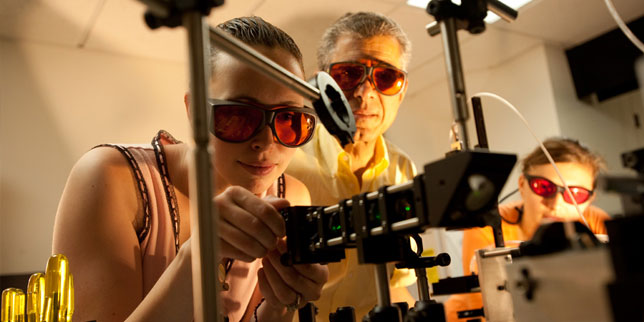Executive Summary

In 2010 the Associate Provost for Undergraduate Education released a report on Undergraduate Education at BU. The purpose of the report was to find potential answers to the question, “How can today’s liberal education provide all college students with the knowledge, skills, and historical and global perspectives they need to be effective and discriminating in everything they do—in higher education, in the workplace, in their communities and families, and as leaders, practitioners, and teachers?”
To achieve this goal, we agreed that the University and each school within the University will need to “unlock” undergraduate education at Boston University in two ways: through enhancement of the current strengths and opportunities at BU, and through the integration of curricular and co-curricular activities across schools and programs within the University.
At the most general level, the Task Force believed that each University school and department must be charged with and held accountable for meeting this challenge. More specifically, to enhance BU’s current strengths, we made recommendations related to:
- The teaching of numeracy in a broader societal context with concrete outcomes
- Utilizing technology more fully in the classroom and assuring technological competencies
- Bringing research to the foreground of undergraduate education
- Promoting the study of innovation and entrepreneurship in all fields
- Improving students’ access to courses in the arts
- Promoting students’ global awareness
- Supporting and expanding co-curricular opportunities
- Expanding residential clusters to foster community and a connection between curriculum and the broader student life
We also recognized the need to better integrate across our schools and colleges. Our recommendations in this area related to:
- Enabling students to transfer between schools and colleges with greater facility and eliminating any and all barriers and inconsistencies that obstruct or compromise this movement
- Expanding the number and variety of service courses and providing easy student access to them
- Providing better and more readily accessed information about coursework options across the University
- Developing interdisciplinary cluster courses as part of a BU General Education
- Broadening postgraduate opportunities and combining undergraduate and graduate education in various ways
- Making the curriculum of professional schools visible on the Arts & Sciences student’s curricular map and providing opportunities for interaction between the professional schools and science/liberal arts
We were aware that without guidance and support, however, these changes could be overwhelming for both faculty and students, so we also made recommendations related to navigating the new, exciting learning environment and about providing strong advising and compassing—essentially, ways to better direct the highly mobile student of today—for our undergraduates. We also felt strongly that any changes in our undergraduate programs should be accompanied by a plan for assessment of both student learning and student satisfaction.
Finally, the Committee felt that several steps should be taken immediately to begin to implement consistent and uniform transfer requirements and proposes that this issue be taken up immediately by the Undergraduate Council (made up of the Associate Deans of the colleges, chaired by the Associate Provost for Undergraduate Education) as the first stage to bringing this to the college level.
This is not only a call for improvement and strategic change; it is a call for action. It is the beginning—for some, perhaps, even a continuation—of an important dialogue for the University community. The Strategic Plan outlined priorities; this document poses important questions regarding the possibilities for “unlocking” undergraduate education at Boston University. What can we do to make the most of all assets of the University to increase students’ participation in effective, highly meaningful educational practices? How can we eliminate all barriers and transfer inconsistencies in order to give students ease of transfer and movement between colleges, as well as full access to our international programs? Which practices are distinctive to our campus, and how do we ensure that all students have a chance to participate in these high-impact experiences? We look forward to meaningful shared discussions, merging traditional success with new ideas, collaborative accountability for important goals, and actions that will matter.